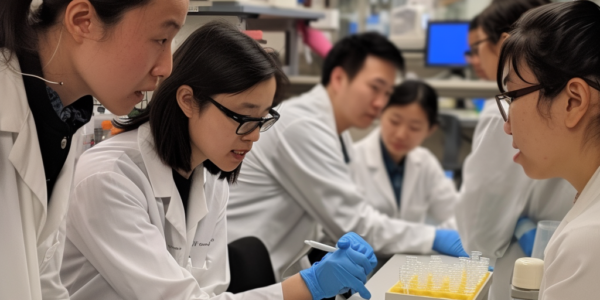Study Links Pesticide Exposure to Increased Prostate Cancer Risk
Recent research from Stanford University reveals a troubling link between pesticide exposure and prostate cancer, identifying 22 pesticides that may increase risk. This groundbreaking study highlights the potential dangers in common foods and emphasizes the need for consumers to be aware of agricultural practices affecting their health. With prostate cancer affecting one in eight men in the U.S., understanding the implications of pesticide residues in food is crucial for public health.
Scientists propose more effective method to remove organic pesticides from drinking water
Water scientists propose a more effective method of removing organic pesticides from drinking water, reducing health risks. By reducing the size of powdered activated carbon particles, a 75 percent reduction in the amount of powder required to eliminate pesticides was achieved, leading to cost savings and improved water treatment.
Yogi Tea Bags Recalled Due to Pesticide Residue
East West Tea Company, LLC recalls 54,846 boxes of Yogi tea bags nationwide due to high pesticide levels. Customers should check for specific UPC and lot codes and dispose of affected products. FDA classifies recall as ‘Class III’ with low health risk. Contact East West Tea Company for more information.
Link between Pesticides and Parkinson’s Disease
Revelations about the link between pesticides and Parkinson’s disease highlight the need for proactive measures to safeguard neurological well-being. New research funded by the Michael J. Fox Foundation has identified three additional pesticides associated with an increased risk of Parkinson’s disease, emphasizing the urgent need for collective action to address the impact of pesticide usage on human health.
Report Highlights Health Hazards of Endocrine Disrupting Chemicals in Plastics and Pesticides
A new report by the Endocrine Society and IPEN highlights the health hazards associated with Endocrine Disrupting Chemicals (EDCs) found in plastics and pesticides. The report raises concerns about the risks to human health and emphasizes the urgent need to address the implications of these chemicals. With EDCs being linked to hormone-related health conditions, the report serves as a wake-up call to the potential risks associated with these chemicals in our daily lives.
Study Reveals High Prevalence of Little-Known Pesticide Chlormequat in Human Bodies
A recent study by the Environmental Working Group found high levels of the little-known pesticide chlormequat in the urine of 77 out of 96 individuals, raising concerns about its impact on human health. The study highlights the potential risks of chlormequat, which has been linked to reproductive and developmental issues in animal studies. With increased levels found in urine samples and regulatory changes allowing its use on imported oats and other foods, the need for rigorous monitoring and regulation of pesticides to safeguard public health is emphasized.
UMass Amherst Researcher Leading Project to Determine Mosquito Age for Improved Pesticide Strategies and Disease Control
UMass Amherst researcher, Lili He, leads a project to determine the age of mosquitoes to improve pesticide strategies and combat mosquito-borne diseases. The $1.71 million NIH-funded project aims to develop a novel approach to age-grade mosquitoes, addressing the current lack of accurate and cost-effective methods. The multidisciplinary team includes experts in analytical development, mosquito biology, biochemistry, field studies, and machine learning modeling, with the ultimate goal of developing a reliable method for age-grading mosquitoes to assess disease risk and facilitate more effective mosquito-control strategies.







